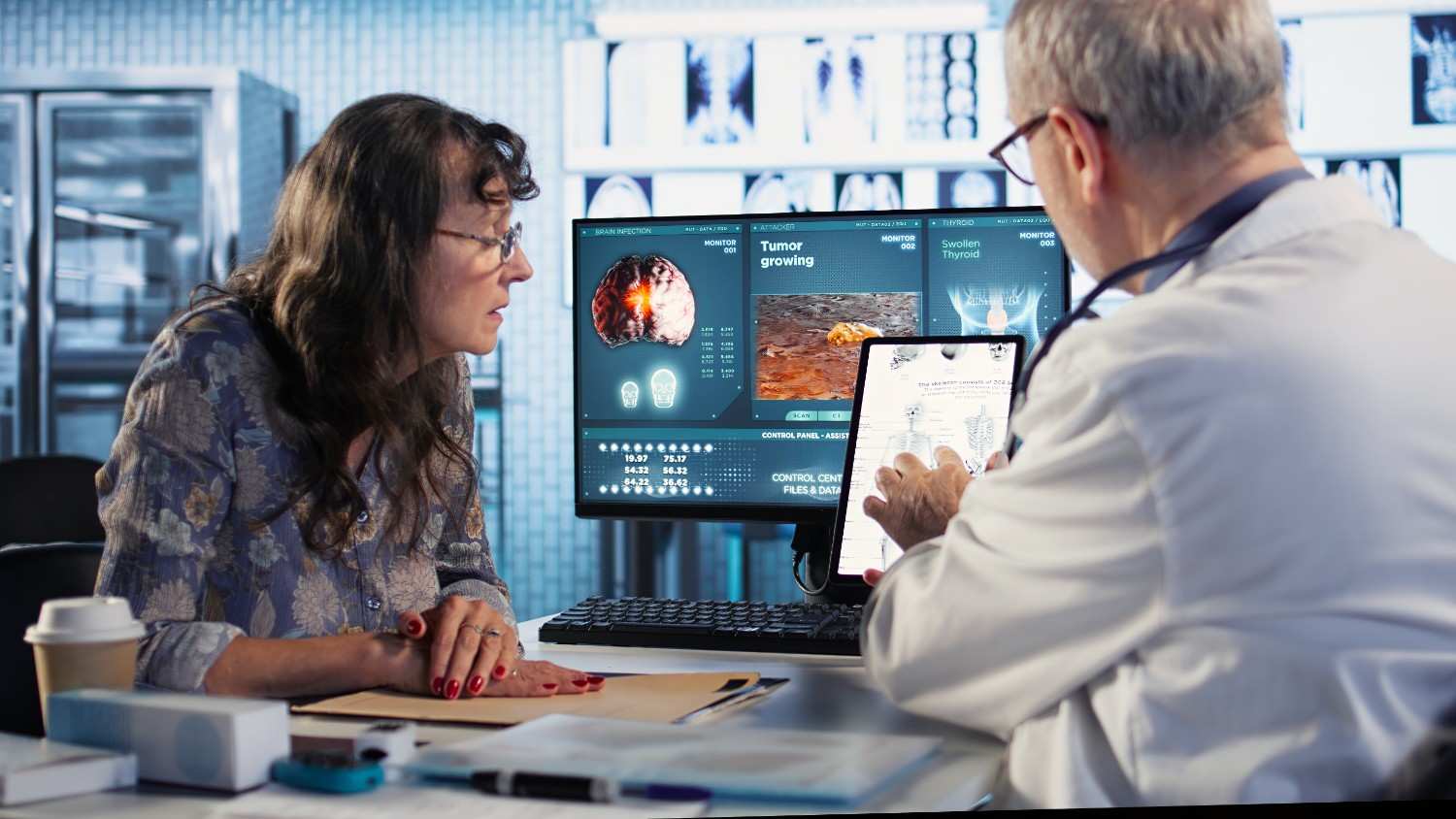Choosing Between Off-the-Shelf and Custom Healthcare Software
Discover the key differences between off-the-shelf and custom healthcare software. Learn which solution fits your facility’s workflows, budget, scalability, and compliance needs to improve care delivery and operational efficiency. Let me know if youd like variations tailored for specific audiences like hospital administrators, IT managers, or healthcare startups.
Healthcare software and apps that are used in today's healthcare industry aren't just lines of code. They are the backbone that keeps patient care, efficiency, and services flowing smoothly across diverse healthcare organizations.
But the most important question to ask when looking at healthcare software solutions is whether to acquire pre-made apps or make your own. If you want a rapid out-of-the-box solution, the idea of picking ready-made software can be very tempting.
But what if your hospital or other healthcare facility has special needs? We will look at the dispute between off-the-shelf and custom healthcare software in more depth below.
The Pros of Off-the-Shelf Healthcare Apps
Here are some of the good things of off-the-shelf healthcare software.
Faster Deployment
When you buy off-the-shelf programs, they're ready to install right away. This makes it easier to learn new technologies and improve your current workflows. Even if some settings are needed to get the program up and running, implementation is also faster.
Low costs up advance
When you make your own healthcare software, the licensing prices for ready-made apps are lower than what you would pay. Also, the price structure is clear because most off-the-shelf apps come with a monthly or yearly fee.
Help for Vendors
Vendors take care of all the technical parts of the program, such training users. This makes it easier to not have to recruit an IT team in-house for assistance. The vendor will also give you updates and patches to make sure your program is always up to date.
More Familiarity
It's easier to use common healthcare apps that are used in the business. Familiarity is important because some of your staff or patients may have used the app before. The last benefit is that you won't have to spend as much time and money on training users.
The Cons of Off-the-Shelf Healthcare Apps
But there are also certain problems with off-the-shelf healthcare software solutions.
The Problem of One Size Fits All
Off-the-shelf apps are made to be used by a lot of people since they think that workflows are the same in all healthcare facilities. But this might not work in some places where the work is more complicated. It will cause problems, and in the worst circumstances, you may have to change how you do things, which will make things less efficient and more frustrating.
Not Much Room for New Ideas
Adding extra functionality to the software by customizing it is costly and sometimes not viable. You can't use new technology like AI and machine learning because you can't integrate it into your system.
Costs are going up and you have less control
As your healthcare firm grows, the cost of subscriptions may go up. Also, if the vendor can get to your database and hosting credentials, you have less control over your data. If you don't pay your bills on time, you could also lose your services.
Why Should You Opt for Custom Healthcare Software?
Here are the main reasons why personalized healthcare apps from companies like Empeek can be better than ready-made ones.
Perfect for your own unique workflows
Nothing rivals the appeal of having a custom-built solution that fits your workflows perfectly. Custom apps are made to fit the way you already do things. It gets rid of friction and makes your workers more productive.
Integration and Cross-Platform Functionality
You can more easily add other solutions to your own healthcare software. You can connect all of your systems into one smooth environment, from apps for managing finances and keeping an eye on patients to tools for managing human resources.
Able to grow and last
The best developers will make a personalized healthcare software package for you that grows with your demands. It's easier to add new features or switch to a different cloud service provider. You can also utilize the system at a different location without having to buy a new license.
More Safety
Only people who work at your healthcare facility and have permission can see your data. This is very important, especially when dealing with private patient information. Some ready-made programs offer backdoor access, which lets the vendor see your data and information without your knowledge.
The solution has built-in compliance with HIPAA and FDA rules from the start. You won't have to alter workflows later to follow the data safety rules in your state if you do this.
Personalized User Experience
The UI/UX is the only element that can change how quickly your staff learns how to utilize the new healthcare software. Custom healthcare software is made with the needs of the end user in mind. Your workers will take a lot of tests to make sure the interface works for them.
The final output will be a custom application with an easy-to-use interface that cuts down on clicks, mistakes, and makes chores easier, which will increase use and happiness.
Final Takeaway
If you're not sure about either off-the-shelf or custom healthcare software, a hybrid strategy is the best way to go. Before you buy, you can try out off-the-shelf solutions for free through samples or demos.
Also, do some research and talk to healthcare IT experts for a more complete picture. They will look at your challenges and suggest the best solution based on your demands and budget.

Subscribe & get all related Blog notification.





Post your comment